“Where are you going now, my love?
Where will you be tomorrow?
Will you bring me happiness?
Will you bring me sorrow?” -Stephen Stills / Crosby, Stills & Nash
We've made it! It's the first Comments of the Week of the new year here at Starts With A Bang, and we're doing our best to start it off right, with some of the most interesting and compelling stories about life, the Universe and everything that there are. This past week has seen the following articles that you should catch up on if you missed anything:
- Choosing your (professional) life (for Ask Ethan),
- The simplest solution to rising CO2 (for our Weekend Diversion),
- Genesis episode 3, The Galaxy (for Mini-Movie Monday),
- Can science prove the existence of God?, and
- A new Universe-year (for Throwback Thursday).
As is usually the case, you've had something to say about everything, but wow, I should have been prepared for the (as of right now) sixty-four comments on the science/God question. Let's go for it, and dive in to your Comments of the Week!
From Omega Centauri on choosing your career/life path: "I went to a midwestern state University, which allowed a talented student to blast through in three years (If I had it to do over again, I’d take five -so as to be super prepared in applied math. That underpreparation and personality issues meant that my my grad student career could best be described as a trainwreck.
I did end up with a very successful career in supercomputing however. In many ways one’s career is a random walk through not very predictable opportunities. But I occasionally miss not having become an astrophysicist."
All of the comments on this thread were similar, and deserve a read. It seems like everyone had the same experience, which is to say:
- In life, you find a mix of things you enjoy and things you're good at; sometimes the overlap is strong, sometimes the overlap is weak.
- Inevitably, in what you do, there will be tasks you don't enjoy that are a part of it. Depending on a number of factors, that might be something you need to learn anyway, it might be something you get through and then it's behind you, or it might be something that's a dealbreaker for you.
- No matter what, the combination of your talents and passions are what make you, career-wise, valuable, and it's up to you to spin that into something you enjoy and have a good life doing.
You may always regret the road you didn't go down, and you may find many opportunities that, if you knew what you know now about life, you would have done differently. That's okay; the key is to value the life you have now and to make the most of it. When a door opens that has great potential behind it, don't be afraid to walk through it. Paralysis by indecision is the surest way to accomplish nothing.
Image credit: Michelle Victoria of Smart Life Ways, via http://smartlifeways.com/earth-university-hopes-to-plant-one-million-tr….
From Jonny t on deforestation, reforestation and the CO2 problem: "This article might want to mention the deforestation occurring at an alarming rate. So we might want to put our efforts into stopping chopping down trees (and ecosystems).
The think small do a backyard project and recycle just makes us feel better about ourselves without actually addressing the big picture so we can go back and stick our heads in our phone."
Sure, Jonny. Let's just stop deforestation, that'll be easy. While we're at it, let's just snap our fingers and convert all our fossil-fuel-emitting energy sources into 100% green ones, and assume that producing those green energy sources was also carbon-neutral. All our problems solved, right?
No, of course not. You must realize that there are lots of positive contributions we can make, and that all of these efforts are important to address a large, systemic problem inherent to the way that our modern society is structured today. Efforts to fight deforestation are hugely important, but it's a lot harder for a single person to do something impactful, cheaply and tangibly on that front. But guess what? Things are actually moving in the right direction on that front.
Deforestation in places ranging from the Amazon to North Korea have resulted in devastating water problems, and people are -- surprise, surprise -- using science to figure that out, learning that forests are necessary for both adding moisture to the air (and resulting in devastating droughts when there aren't enough of them) and stabilizing the water table (resulting in devastating floods and mudslides when their root systems are no longer present).
In other words, as we learn more about the necessity of forests, this is a problem that seems to be getting better already. "Tree poaching" is still a problem, but unless you live in a place where deforestation is actively occurring, it's tough to have an impact. Planting trees? Kind of easy if you're a landowner almost anywhere.
From Peter Smith on Genesis Episode 3: "Everytime I read your posts I am reminded of why this is my all-time favourite blog."
Okay, too many of you didn't watch this, and you're missing out. I mean, you do want to know how galaxies form, don't you? Watch it.
It's about the story of the Universe, as best as we ("we" being the full body of scientific knowledge) understand it, and bringing you up to the frontiers, sharing with you the story of how we got there. It's for everyone, and it's wonderful. Every time someone expresses how much they enjoy it, that they got something positive from it, or that they just feel a little better having learned something new, I feel like all the time and effort I put into it is worth it.
Let's take the journey together even farther, and see what wonderful places we wind up in!
From jane on life on Mars: "One of NASA’s Mars missions back in the 70s obtained results indicative of not just past life, but current life. It was agreed in advance that the experiment should have returned positive results only if current metabolism by soil microflora was occurring; that happened; a news conference was scheduled; then it was abruptly cancelled and the junior scientist in charge of that experiment was gagged."
Could there be life on Mars, the same way there's life on Earth? Yes, it's possible! But what you have to do is not only show -- as the Viking experiment did in 1976 -- that injecting C-14 as part of a nutrient solution results in the release of CO2 tagged with the C-14 into the atmosphere (which it did), but that:
- This couldn't have happened via an inorganic process, and
- That your sample wasn't contaminated with life originating on Earth,
either one (or both) of which is what is overwhelmingly thought to have happened. Elliot and Michael have more (and very informative) things to say on the matter, including that no one was gagged.
You will see claims of "diatoms originating from outer space" propagating through the news, usually led by the same claimant, Chandra Wickramasinghe, completely disregarding that these diatoms are identical to the ones found on Earth. There may be past life on Mars; there may even be present life on Mars, but you need much better evidence than what we presently have. Hopefully, the next generation of Mars Rover will be equipped with the tools to find that evidence (or lack thereof)!
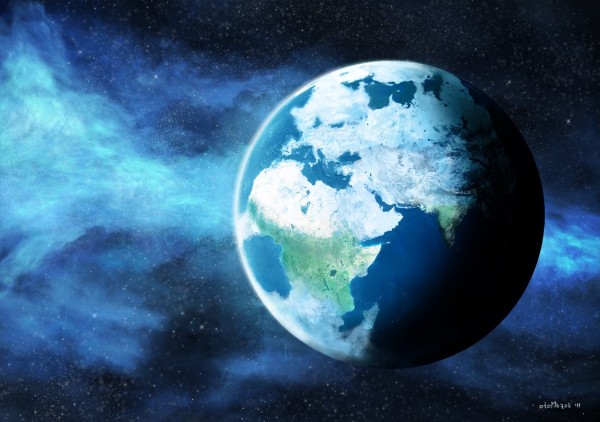 Image credit: Stuart Rickard of After Ice, viahttp://blog.after-ice.com/stuart-rickard/.
Image credit: Stuart Rickard of After Ice, viahttp://blog.after-ice.com/stuart-rickard/.
There were many good comments on the rest of the article, but one jumped out at me; that of Brian Cox: "I am a man of faith who spent 22 years as a committed agnostic, and like you I have deep respect for those who don’t share my current belief. It is easier to show that mutual respect, and a meaningful exchange is more likely to happen, when thinking men and women begin by assuming the best about each other when they disagree.
[...]
My question for you is, “Why does anyone think that life on other planets would constitute a problem for the existence of God?” This subject is a red herring, and I was disappointed that the author of the WSJ piece even mentioned it."
So, you really want to go the whole way? You want to ask not about how this or that small chemical reaction happened on a forgotten world orbiting a boring star in a non-descript galaxy on the outskirts of a dissociating supercluster in a mind-bogglingly giant Universe, because you already know that just like all the other natural, physical phenomena ever uncovered in the Universe, this one will, inevitably, have a natural, physical explanation behind it. Instead, you want to ask -- really -- about the existence of "A Creator." About the prime cause for "all of this" to exist.
Imagine how God-like we would appear to a creature living in a two-dimensional world (like in Flatland), as we could move through their space and time easily, add or remove whatever we want from it, we could create wormholes and discontinuities in their Universe, we could rearrange their internal organs without cutting into them, and we could rip them right out of existence at our whim.
If there is an active God like that for our Universe, a higher-dimensional being would appear indistinguishable from a divine one. All it would take is a set of observations of these kinds of phenomena, and we'd know at least one existed. Without that data, however, we can only speculate.
Do these higher dimensions exist for us, or is it just the 3 space and 1 time? If so, are they populated by entities (or an entity) that sprang our Universe into existence? Did they create the space and time that we occupy? Did they cause inflation to end and the Big Bang to occur? Did they tune the Universe to have the physical constants that they have?
Or did those physical laws, properties, entities and other "things" always exist, or come to exist via natural processes that we haven't uncovered yet?
These are the real metaphysical mysteries, in the sense that physical science has not (yet) been able to provide a window into the potential answers. I wish that conversations about the existence of God centered around these questions, because if there is a God, this is where (I think) those discussions belong: not about "ooh, did someone intervene to assemble atoms into this molecular configuration?" (No, obviously.) But about what -- if anything -- caused our Universe to be the way it is, with the laws and properties that it has.
These are the questions that people interested in the "God" question -- religious scholars, philosophers of physics, and so on -- should be asking. These are where the great mysteries of the Universe that are beyond the scope of science lie.
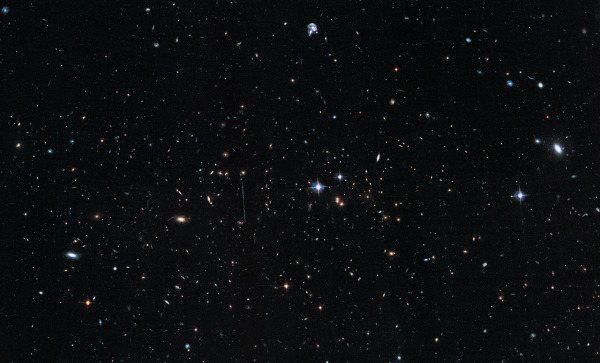 Image credit: NASA, ESA, J. Jee (University of California, Davis), J. Hughes (Rutgers University), F. Menanteau (Rutgers University and University of Illinois, Urbana-Champaign), C. Sifon (Leiden Observatory), R. Mandelbum (Carnegie Mellon University), L. Barrientos (Universidad Catolica de Chile), and K. Ng (University of California, Davis).
Image credit: NASA, ESA, J. Jee (University of California, Davis), J. Hughes (Rutgers University), F. Menanteau (Rutgers University and University of Illinois, Urbana-Champaign), C. Sifon (Leiden Observatory), R. Mandelbum (Carnegie Mellon University), L. Barrientos (Universidad Catolica de Chile), and K. Ng (University of California, Davis).
For everything else, there's science.
And finally, from darkgently on looking ahead in the Universe: "Actually this dovetails nicely with your previous post – the universe doesn’t look so ‘fine-tuned’ with a future full of cold black dwarfs and evaporating black holes!"
When I think about it, the Universe does look fine-tuned to me, but that's only because of what I am and what I see today. But that doesn't necessarily imply a conscious, loving tuner; it could just as easily imply the cold, lifeless existence of a natural, physical tuning process, the same way that finding a path of rubble could imply a path-builder, but could just as easily (perhaps more easily) imply the existence of an eroded path, gravity, and an avalanche.
 Image credit: 2012 F. Nolan, MD., via http://www.docdownunder.com/2014_03_01_archive.html.
Image credit: 2012 F. Nolan, MD., via http://www.docdownunder.com/2014_03_01_archive.html.
You are free to believe whatever you think is more likely or whatever gives you the most comfort. But regardless of what you believe, I hope we can all agree on the importance of learning all that we can about all that's knowable.
And with that, I thank you for a great week of comments, and look forward to all the joys that the new year has to bring!



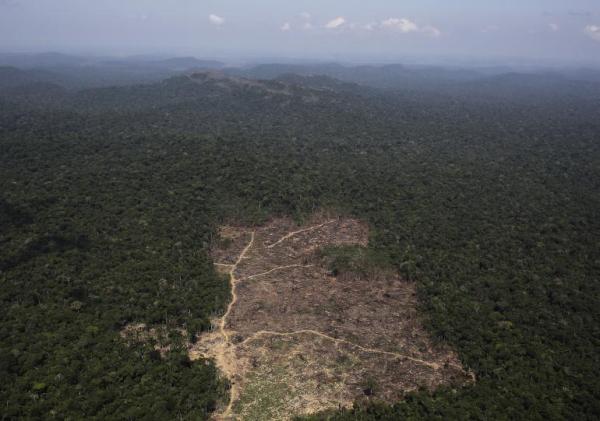
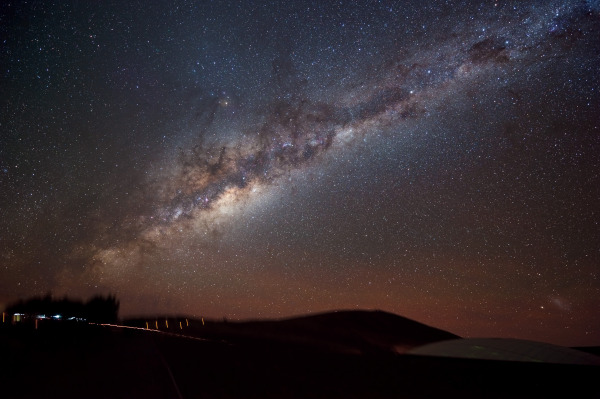
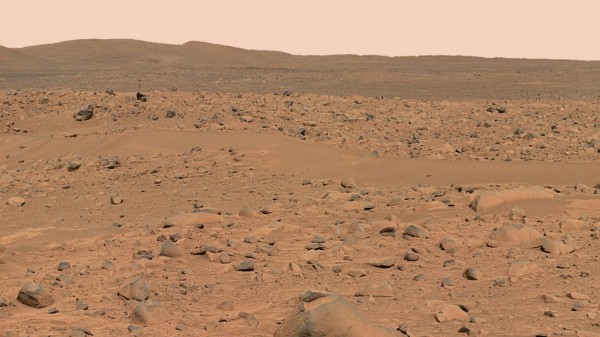
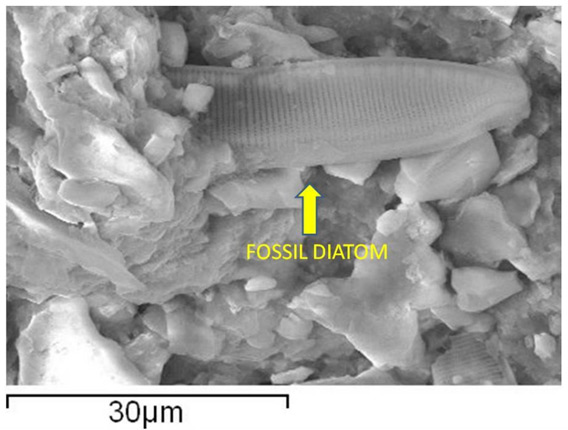
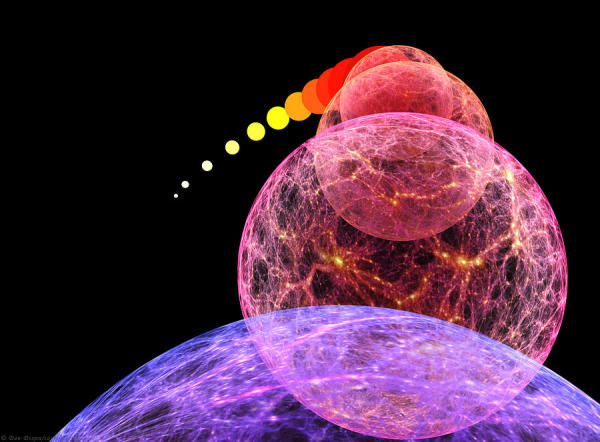
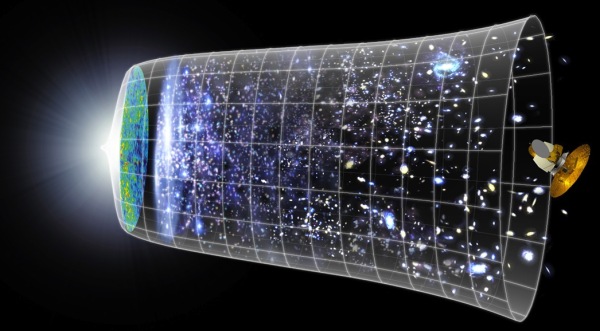
Question: Is the total mass of the entire Universe known / well estimated by now (including the invisible / unreachable parts from our vantage point)? This assumes it's finite (although boundless, obviously) of course.
@Alex #1: No. That is an impossible question, because we have no idea how far the Universe might extend beyond the cosmic horizon (currently ~46 Gly). The best lower bound is at least 200 Gly, but it could be more, it could even (logically, if not physical-reasonably) be infinite.
What we _can_ answer, to a fairly high degree of precision, is what the average _density_ of the Universe is. The "critical density", that is, the density required for the average geometry of the Universe to be Euclidean (triangles which add up to 180 degrees, parallel lines which never meet, etc.) is 5 amu per cubic meter. Observations of the cosmic microwave background, Type Ia supernovae, etc., combined currently restrict the total density (of baryonic matter, dark matter, and dark energy all combined) to be within 1% of the critical density (see https://en.wikipedia.org/wiki/Flatness_problem#Current_value_of_.CE.A9).
OK, so the extent cannot be estimated but what about it being finite/infinite (a weaker question). Any proofs / theories of the Universe being finite? My understanding has been so far that the finite Universe would not contradict the theory (as its space could be curved onto itself by all the mass it contains doing away with requiring bounds otherwise) but are there any more definite conclusions today?
@Alex #3: In fact, the finite/infinite issue is much harder question. As I said, the current lower bound on the extent of the universe is about 5 times the cosmic horizon (~200 Gly). There is no upper bound. The current best measurement for possible closed curvature is that Omega_0 = 1.01. That is, the observable Universe is within 1% of being completely flat, with no net curvature at all (and hence, not closed into a hyperball).
It looks fine-tuned for organisms that love hard vacuum and sleets of cosmic rays to me.
Do this thought experiment: imagine you find a gerbil habitat. Its a standard, several cubic foot, glass container. Wheel. Feeder tube. Bowl o' gerbil food. But surrounding it is a mile-diameter sphere of water containing gerbil-eating sharks. And surrounding that is a tens of miles diameter sphere of deadly sulphuric acid that would destroy both the gerbils and sharks in an instant. Now consider the entire thing as a whole - does that seem like something designed for the benefit of the gerbils? No. At best, that looks a lot like a gerbil prison. Anyone designing such a system seems mighty intent on ensuring the gerbils don't get out of their habitat.
Yet that is comparable to our world. We humans are surrounded by animals that would gladly eat us, from the micro world of parasites to the macro world of large carnivores. And surrounding that is an unlimited expanse of environment completely hostile and inimical to our form of life. If its designed (and for the record, I think ID is bunk), it sure doesn't look like it was designed with our benefit in mind.
@eric, that's a really good example -- I prefer it to these:
http://rationalwiki.org/wiki/Fine-tuned_universe
http://rationalwiki.org/wiki/Essay:Why_the_%22fine-tuned_universe%22_ar…